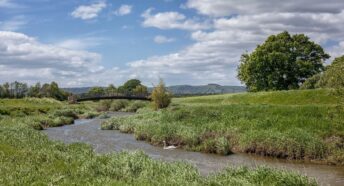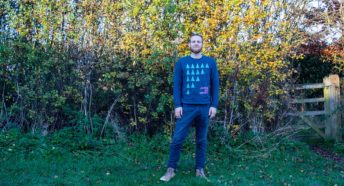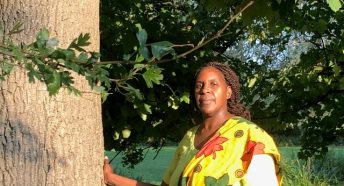Soothing spaces: nature and our mental health
Connecting with the outdoors on our doorstep is a great comfort for many of us. Lucy Jones explains its positive effect on her.
We all know that spending time in our beautiful countryside can be ‘restorative’ – but what does that actually mean, and how does it work?
When I started researching the science behind the relationship between spending time in the natural world and our mental health for my book Losing Eden, I imagined there might be one silver bullet piece of evidence that explained the mechanism.
Instead, I discovered that connecting with the living world affects us from our heads to our toes, in myriad ways, from the scent of the earth after it has rained and its calming effect on the brain to how our nervous systems are balanced through walking through woods.
Noticing nature
In 2020, one of the most beautiful springs in my living memory, I’ve been awed by the dawn chorus, the purple haze of bluebells, by that acid fresh green of new leaves. The science of awe has been studied seriously by scientists in California over the last decade. Experiencing awe in nature isn’t just ‘nice’ – it can reduce biomarkers associated with unwelcome inflammation and even make us more ethical and generous.
Walking a few times a week by an abandoned canal just outside Basingstoke in Hampshire, where I live, I pause to really look at cow parsley instead of just walking past the puffs of snow. I see that the flowers are fractal in shape, meaning that the pattern of the five-petal flower is repeated in increasing size.
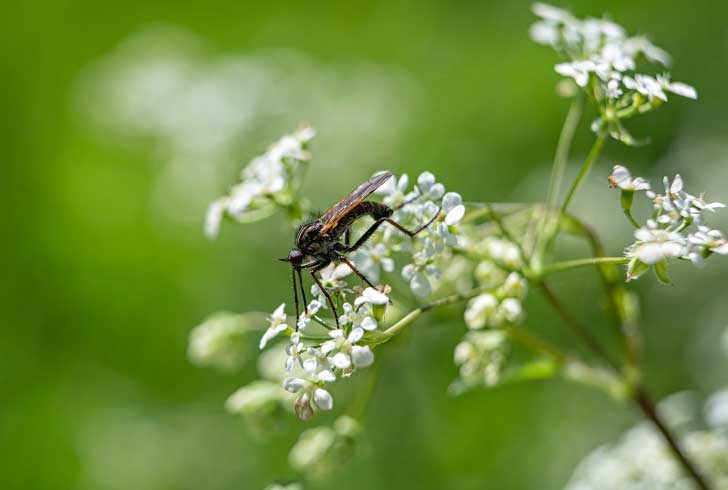
Research suggests that looking at fractal shapes – which are found all over the place in nature – produces feelgood brainwaves. No wonder we’re often drawn to these hypnotic shapes. I start to notice more and more fractal shapes in the simple weeds on my urban street and feel instantly soothed.
Natural therapy
In early May, life at the canal is crescendoing. Fat queen bumblebees drone around the ground ivy and lungwort. The ducklings peep. A thrush lets rip at the top of an oak tree.
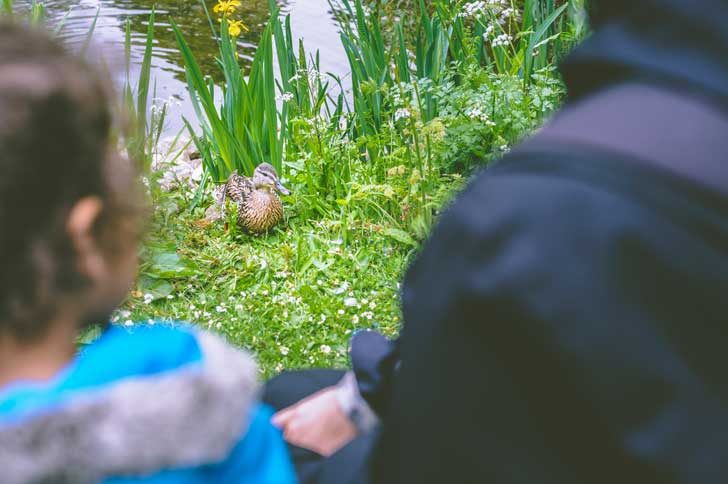
These natural sounds are worth pausing to truly listen to. Yes, they are beautiful, and, yes, they might stir memories, but there is also robust evidence that listening to natural sounds can decrease stress and enhance mood.
I’m lucky to have a three-year-old as my companion naturalist. By dint of her height, she often spots things I wouldn’t see, such as beetles, caterpillars and butterfly eggs.
The other day she paused to take in a dandelion, a flower I often overlook. She called me over and I knelt down to her level. The yellow petals were crawling with an abundance of syrup-coloured beetles. ‘A family’, as she put it. As we walk daily now, we’re both slurping up as much of nature as we can find. The other day – joy! – we heard a cuckoo for the first time.
Whether it’s a few trees on your road or an ancient woodland, the mental health benefits of spending time in nature are now being proven in many ways by different scientists across the world.
Our natural environment has never been more crucial as we live through this difficult time. Perhaps the more we find we rely on the rest of nature during this pandemic year, and receive joy and delight and comfort from connecting with it, the more we might feel galvanised to care for it afterwards.
Losing Eden: Why Our Minds Need the Wild by Lucy Jones is published by Allen Lane.
A version of this article was originally published in CPRE’s award-winning magazine, Countryside Voices. You’ll have Countryside Voices sent to your door three times a year, as well as access to other benefits including discounts on attraction visits and countryside kit from major high street stores when you join as a CPRE member. Join us now.





